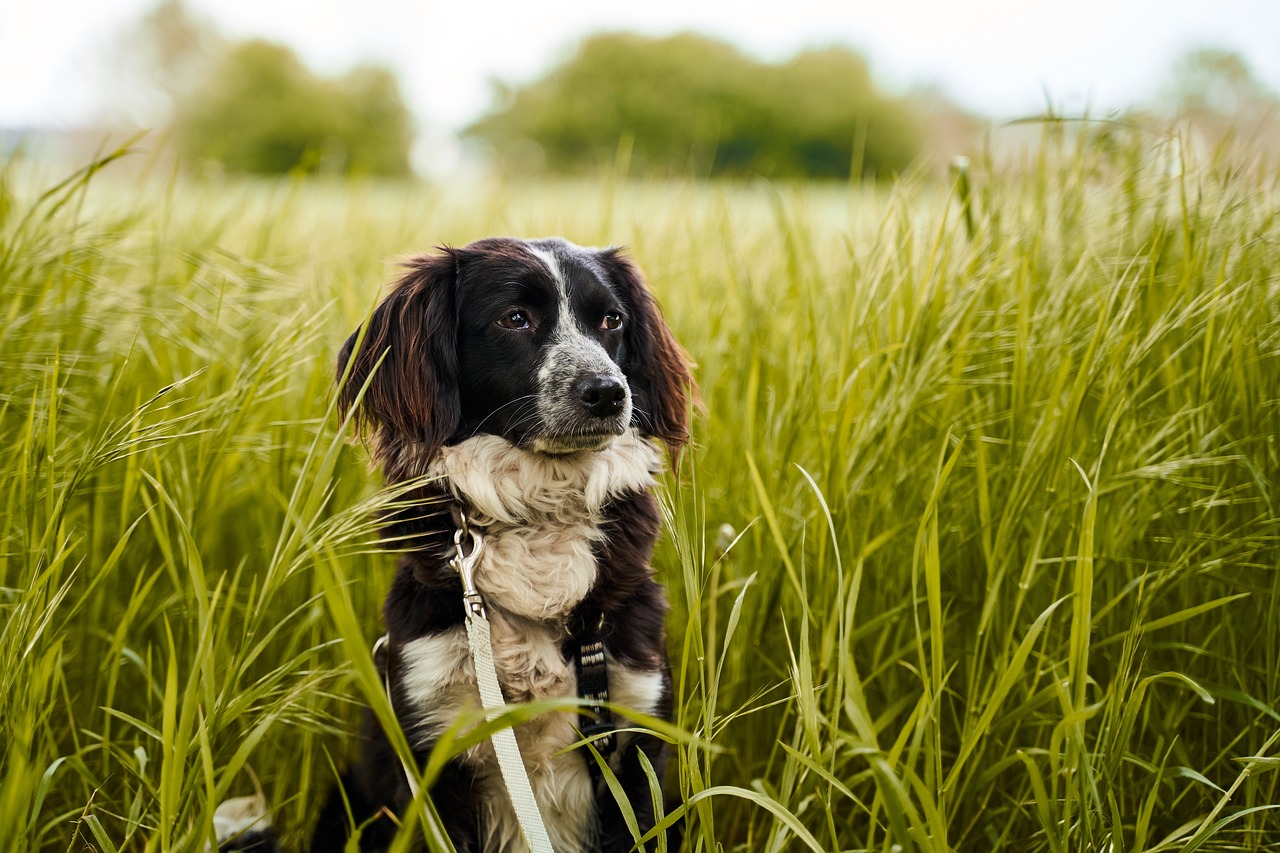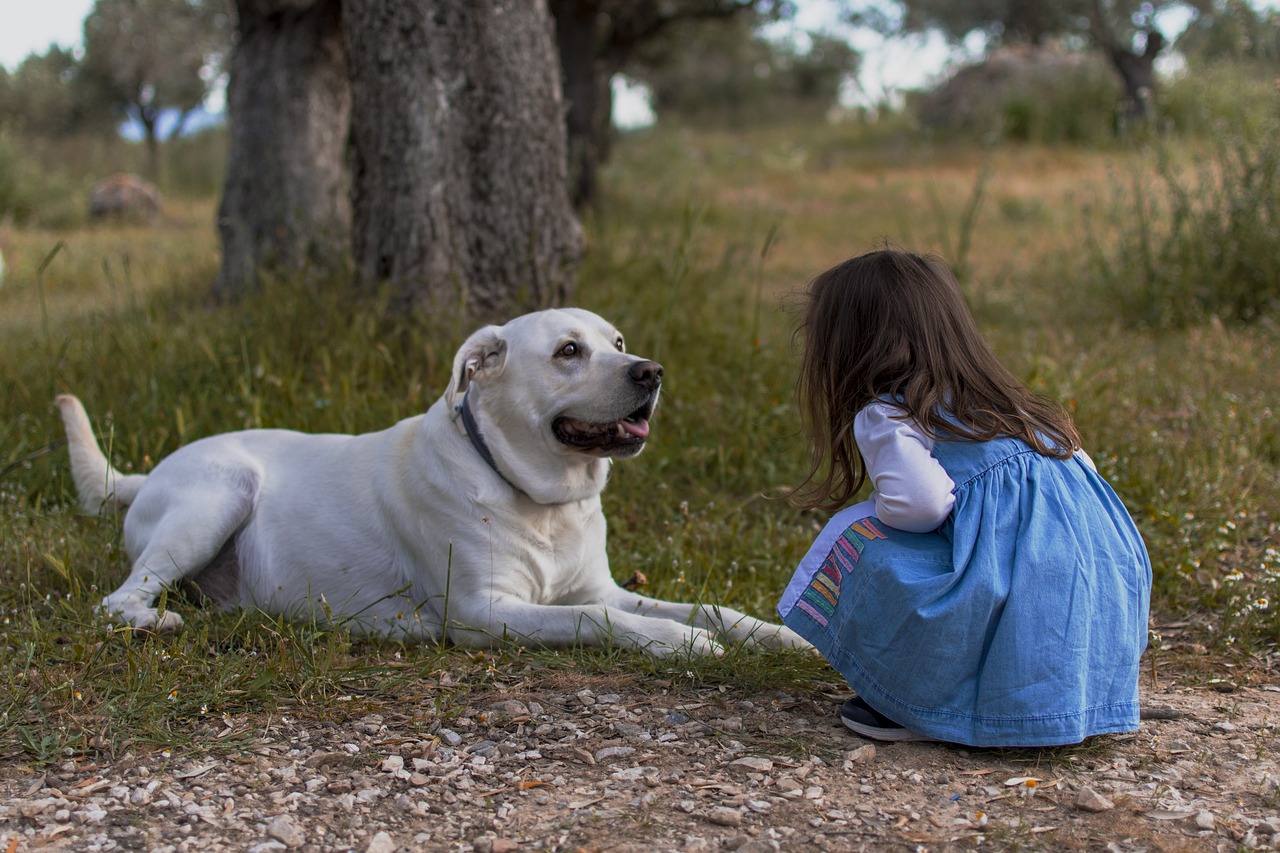This article explores the impact of mosquitoes on dogs, addressing common concerns and providing essential information for pet owners to ensure their furry friends remain safe and comfortable during mosquito season.
Understanding Mosquito Behavior
To effectively protect dogs from mosquitoes, it’s crucial to understand their behavior. Mosquitoes are attracted to warmth, carbon dioxide, and certain body odors. They thrive in humid environments and are most active during dawn and dusk. By knowing when and where mosquitoes are likely to be, pet owners can develop effective preventative strategies.
Are Dogs at Risk from Mosquito Bites?
Yes, dogs can be at risk from mosquito bites. While a bite may seem minor, it can lead to allergic reactions or even serious diseases. Heartworm, a life-threatening condition transmitted by mosquitoes, is particularly concerning. Pet owners should be aware of the potential risks to keep their pets safe.
Common Symptoms of Mosquito Bites in Dogs
- Swelling and redness at the bite site
- Excessive itching or scratching
- Behavioral changes such as increased irritability or restlessness
Preventative Measures for Dog Owners
Implementing effective preventative measures is key to protecting dogs from mosquito bites. Here are some strategies:
- Use mosquito repellents designed for pets.
- Keep dogs indoors during peak mosquito activity times.
- Maintain a clean yard by removing standing water and keeping grass trimmed.
Health Risks Associated with Mosquito Bites
Understanding the health risks linked to mosquito bites in dogs is vital. Common diseases transmitted by mosquitoes include:
- Heartworm: A serious condition that can lead to heart failure.
- West Nile Virus: Although less common in dogs, it can still pose a risk.
When to Seek Veterinary Care
Knowing when to seek veterinary care is essential. If your dog exhibits any symptoms of disease or has a severe reaction to a mosquito bite, it’s crucial to consult a veterinarian promptly. Early intervention can make a significant difference in treatment outcomes.
In conclusion, while mosquitoes can pose a threat to dogs, understanding their behavior and taking preventative measures can help keep your furry friends safe. By being proactive, pet owners can ensure a comfortable and healthy environment for their pets during mosquito season.
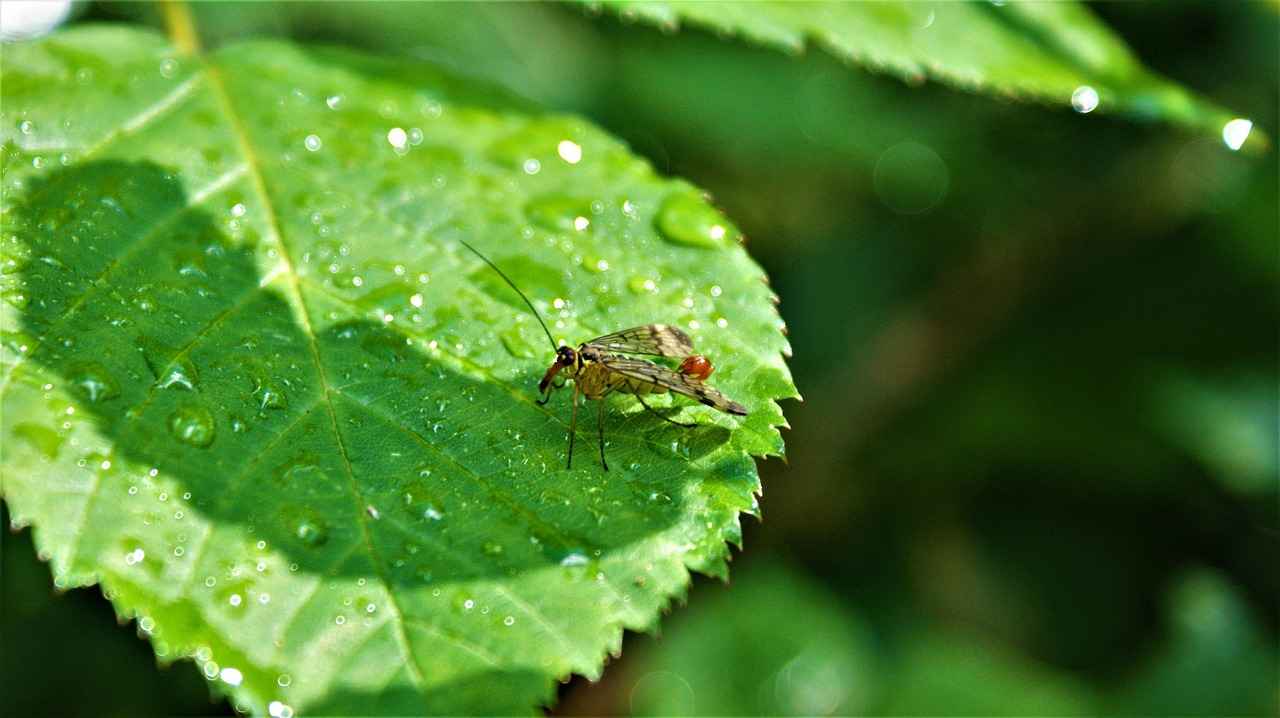
Understanding Mosquito Behavior
To effectively protect dogs from mosquitoes, it’s crucial to understand their behavior. This includes their feeding patterns and preferred environments, which can significantly aid in developing effective preventative strategies. Mosquitoes are attracted to certain conditions, and by recognizing these, pet owners can take proactive measures to shield their furry companions.
Mosquitoes are primarily drawn to warmth and carbon dioxide, both of which are emitted by dogs and humans alike. When a dog is active outdoors, it can inadvertently attract mosquitoes due to its body heat and the carbon dioxide produced during breathing. Additionally, mosquitoes thrive in humid environments, making areas with standing water or dense vegetation particularly appealing to them.
Understanding the life cycle of mosquitoes is also essential. These pests go through several stages: egg, larva, pupa, and adult. The adult female mosquito, which is the one that bites, requires a blood meal to develop her eggs. This means that the risk of mosquito bites increases during the breeding season, typically in warmer months when they are most active.
To minimize the risk of mosquito bites, pet owners can adopt several strategies:
- Limit outdoor activities during peak mosquito hours, typically dawn and dusk.
- Eliminate standing water around the home, as this is where mosquitoes breed.
- Use mosquito repellents specifically designed for pets to create a barrier against bites.
- Maintain the yard by regularly mowing the lawn and trimming shrubs to reduce mosquito habitats.
By understanding mosquito behavior and taking these preventative measures, pet owners can ensure their dogs remain safe and comfortable during mosquito season. This proactive approach not only protects pets from bites but also helps in preventing the transmission of mosquito-borne diseases.

Are Dogs at Risk from Mosquito Bites?
As the weather warms up, many pet owners may wonder about the impact of mosquitoes on their furry companions. It is essential to understand that dogs are indeed at risk from mosquito bites, which can lead to various health issues. This section aims to inform pet owners about the potential dangers associated with mosquito bites and the importance of taking preventative measures.
One of the primary concerns related to mosquito bites in dogs is the possibility of allergic reactions. Some dogs may develop localized swelling, redness, or intense itching at the site of the bite. In severe cases, dogs can experience systemic allergic reactions, leading to symptoms such as difficulty breathing or swelling of the face and throat. It is crucial for pet owners to monitor their dogs closely and seek veterinary attention if they notice any of these alarming signs.
Moreover, mosquitoes are known vectors for several serious diseases that can affect dogs. One of the most well-known is heartworm disease, caused by a parasitic worm transmitted through mosquito bites. If left untreated, heartworm can lead to severe health complications, including heart failure and even death. Other diseases, such as West Nile virus, have also been documented in dogs, although they are less common. Understanding these risks can help pet owners take proactive steps to protect their pets.
In addition to physical symptoms, pet owners should be aware of behavioral changes that may indicate discomfort or illness in their dogs. Increased restlessness, irritability, or a sudden change in appetite can all signal that a dog is suffering from the effects of mosquito bites or even a transmitted disease. Recognizing these signs early can be critical for ensuring timely veterinary care.
In conclusion, the risks associated with mosquito bites in dogs are significant and should not be overlooked. By being informed about potential allergic reactions and diseases, pet owners can take necessary precautions to safeguard their pets from these pesky insects. Implementing preventative measures, such as using mosquito repellents designed for dogs and creating a mosquito-free environment, can significantly reduce the risks and keep our furry friends safe and healthy.
Common Symptoms of Mosquito Bites in Dogs
Recognizing the symptoms of mosquito bites in dogs is essential for timely treatment. Mosquito bites can lead to discomfort and, in some cases, serious health issues. Understanding the typical signs to look for in affected pets can help owners act quickly and effectively.
- Swelling and Redness: One of the most common reactions to mosquito bites is localized swelling. This may be accompanied by redness around the bite site. Owners should observe the affected area for any changes.
- Itching and Scratching: Dogs may exhibit signs of irritation, such as excessive scratching or biting at the bite site. This behavior can lead to further skin damage and infections if not addressed.
- Hot Spots: In some cases, the area around the mosquito bite may develop a hot spot, which is a localized area of inflammation and infection. These require prompt veterinary attention.
- Behavioral Changes: Dogs may become restless or irritable due to discomfort from mosquito bites. Increased anxiety or a desire to hide can indicate that your pet is feeling unwell.
- Loss of Appetite: If a dog is experiencing discomfort from bites, it may show a decreased interest in food or treats. Monitoring your pet’s eating habits can provide insight into their overall health.
Being vigilant and recognizing these symptoms can significantly aid in ensuring the well-being of your dog. If you notice any of these signs, it is advisable to consult with a veterinarian for appropriate care and treatment options.
Physical Reactions to Mosquito Bites
Understanding the physical reactions that dogs may exhibit in response to mosquito bites is crucial for pet owners. When a dog gets bitten by a mosquito, it can lead to several noticeable symptoms that indicate discomfort or an allergic reaction.
One of the most common reactions is swelling around the bite area. This swelling can vary in size and might be accompanied by redness, which indicates inflammation. Additionally, dogs often experience itching, causing them to scratch or bite at the affected area, which can lead to further irritation or even infection if not monitored closely.
In some cases, dogs may develop hives or welts on their skin, which are raised, itchy areas that can appear anywhere on their body. These reactions can be alarming for pet owners, but understanding the symptoms is the first step in providing appropriate care.
It’s important for dog owners to observe their pets closely after outdoor activities, especially during mosquito season. If swelling, redness, or itching is noted, it is advisable to take action. Applying a cool compress can help soothe the affected area, while over-the-counter antihistamines may provide relief in mild cases. However, it is essential to consult with a veterinarian before administering any medication to ensure it is safe for your dog.
In more severe cases, dogs may exhibit signs of distress, such as excessive licking, restlessness, or even vomiting. If these symptoms occur, it is crucial to seek veterinary care immediately, as they may indicate a more serious allergic reaction or a secondary infection.
By being aware of these physical reactions, pet owners can respond effectively and ensure their furry companions remain safe and comfortable.
Behavioral Changes in Affected Dogs
When dogs experience discomfort from mosquito bites, they may exhibit a variety of behavioral changes that can be easily overlooked by their owners. These changes can serve as vital indicators of distress and help in identifying whether a dog is suffering from mosquito-related issues.
- Increased Restlessness: Dogs may become more restless than usual, pacing around the house or yard. This behavior is often a sign that they are uncomfortable and seeking relief from the irritation caused by bites.
- Irritability: A normally calm dog may show signs of irritability, such as growling or snapping, particularly if they are touched in sensitive areas. This change in temperament can be alarming and is often a direct response to pain or discomfort.
- Excessive Scratching or Biting: Dogs may scratch or bite at the affected areas more frequently, which can lead to secondary infections if not addressed. Monitoring these behaviors is crucial for preventing further complications.
- Withdrawal: Some dogs may become withdrawn or less interactive with their owners and other pets. This change can indicate that they are feeling unwell or distressed due to mosquito bites.
- Changes in Appetite: If a dog is in pain, they may lose interest in food or treats. A sudden change in eating habits can be a significant sign that something is wrong, possibly due to mosquito bites.
Recognizing these behavioral changes early can be essential for pet owners. By observing their dog’s behavior closely, owners can determine if their furry friend is suffering from the effects of mosquito bites and take appropriate measures to alleviate their discomfort.
Preventative Measures for Dog Owners
Protecting our furry friends from mosquito bites is essential, especially during warmer months when these pests are most active. Implementing effective preventative measures can significantly reduce the risk of bites and associated health issues. Below are several strategies that pet owners can adopt to minimize their dogs’ exposure to mosquitoes:
- Limit Outdoor Time: During peak mosquito activity, typically at dawn and dusk, it’s wise to keep dogs indoors. This simple adjustment can greatly reduce their chances of being bitten.
- Use Mosquito Repellents: Consider using dog-safe mosquito repellents. Products specifically formulated for pets can provide an additional layer of protection. Always consult with a veterinarian before applying any new product.
- Maintain Your Yard: Regularly mowing the lawn and trimming shrubs can eliminate potential mosquito breeding grounds. Standing water should be removed, as it serves as a breeding site for mosquitoes.
- Install Screens: Ensure that windows and doors are fitted with screens to keep mosquitoes out of your home. This can create a safer indoor environment for your dog.
- Consider Natural Barriers: Planting mosquito-repelling plants such as citronella, lavender, and marigolds can help deter these pests from your yard.
- Use Fans Outdoors: Mosquitoes are weak flyers. Setting up fans in outdoor areas can create a breeze that makes it difficult for them to approach your dog.
By implementing these strategies, pet owners can significantly reduce their dogs’ risk of mosquito bites, thereby promoting their overall health and well-being. Staying informed and proactive is key to ensuring a safe and enjoyable environment for our beloved pets.
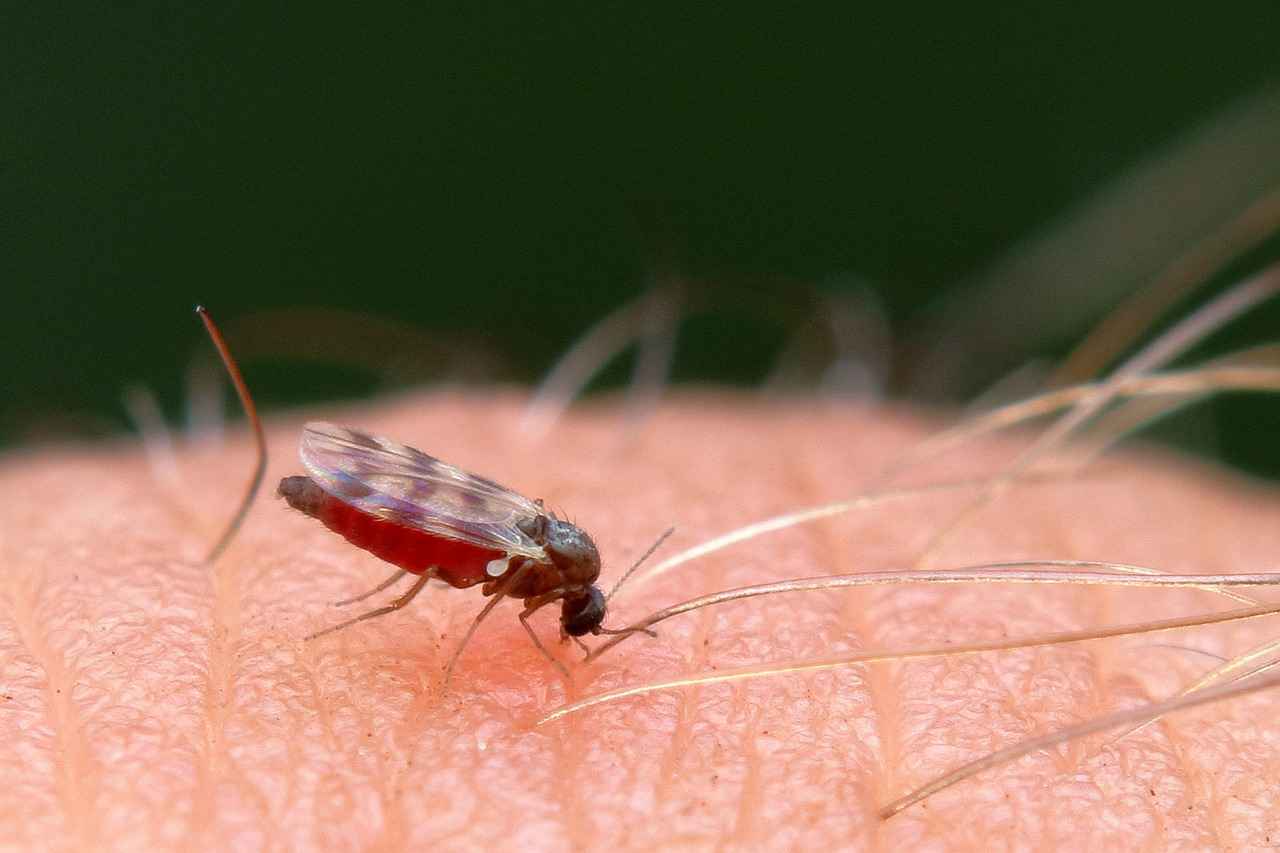
Effective Mosquito Control Methods
In the quest to protect our beloved pets, particularly dogs, from the nuisances of mosquitoes, it is essential to implement effective mosquito control methods. These methods not only help in safeguarding our furry friends but also contribute to a more comfortable living environment. Below are some practical strategies that pet owners can adopt to minimize mosquito exposure.
- Eliminate Standing Water: Mosquitoes breed in stagnant water. Regularly check your yard for any areas where water may collect, such as bird baths, plant saucers, or clogged gutters. Empty these containers frequently to disrupt the mosquito lifecycle.
- Use Mosquito Repellents: There are various mosquito repellents available specifically designed for dogs. Look for products that are safe and effective, and apply them according to the manufacturer’s instructions. Always consult your veterinarian before introducing any new product to your pet’s routine.
- Install Screens: Ensure that windows and doors are fitted with screens to prevent mosquitoes from entering your home. Repair any holes or tears in existing screens to maintain their effectiveness.
- Maintain Your Yard: Keeping your lawn well-trimmed and your garden tidy can help reduce mosquito habitats. Remove excessive foliage and debris that may provide shelter for mosquitoes.
- Plant Mosquito-Repelling Plants: Certain plants, such as citronella, lavender, and marigolds, are known to repel mosquitoes. Consider incorporating these into your garden to create a natural barrier against pests.
- Use Mosquito Traps: Setting up mosquito traps around your property can help capture and reduce the mosquito population. These traps use attractants to lure mosquitoes and subsequently eliminate them.
By implementing these , pet owners can significantly reduce the risk of mosquito bites for their dogs. Maintaining a proactive approach not only enhances the well-being of pets but also contributes to a more enjoyable outdoor experience for everyone in the household.
Using Mosquito Repellents for Dogs
When it comes to protecting our furry companions from pesky mosquito bites, pet owners must be informed about the various mosquito repellents specifically formulated for dogs. Understanding the options available can help ensure that our pets remain safe while enjoying the great outdoors.
Many commercial mosquito repellents contain ingredients that are safe for dogs and effective against mosquitoes. Here are some safe options that pet owners can consider:
- Natural Essential Oils: Some repellents utilize natural ingredients such as citronella, eucalyptus, and lavender oils. These oils can help deter mosquitoes without exposing dogs to harmful chemicals.
- Veterinarian-Approved Products: Look for sprays or topical treatments that are specifically designed for dogs and have received approval from veterinarians. These products are formulated to be safe and effective.
- Collars with Repellent Properties: Certain collars are infused with mosquito-repelling ingredients that provide long-lasting protection. These can be an easy and effective way to keep mosquitoes at bay.
However, it is crucial for pet owners to avoid using human mosquito repellents on dogs, as many contain DEET and other harmful chemicals that can cause serious health issues. Always read labels carefully and consult with a veterinarian before trying a new product on your pet.
In addition to using repellents, pet owners can implement other preventative measures to minimize mosquito exposure. Keeping dogs indoors during peak mosquito activity, especially at dawn and dusk, can significantly reduce the risk of bites. Furthermore, maintaining a clean yard by removing standing water and trimming overgrown vegetation can help diminish mosquito populations.
In conclusion, choosing the right mosquito repellent for dogs involves careful consideration of ingredients and safety. By opting for veterinarian-approved products and taking additional preventative measures, pet owners can effectively protect their dogs from the discomfort and potential health risks associated with mosquito bites.
Creating a Mosquito-Free Environment
Creating a mosquito-free environment in your yard is essential for protecting both your family and pets from these pesky insects. By implementing effective landscaping tips and maintenance practices, you can significantly reduce mosquito populations and enjoy your outdoor space without worry. Below are some practical steps to help you achieve this goal.
- Eliminate Standing Water: Mosquitoes breed in stagnant water. Regularly check your yard for any standing water in bird baths, flower pots, or clogged gutters, and empty them to prevent breeding.
- Maintain Your Lawn: Keep your grass trimmed and your garden tidy. Long grass and dense vegetation provide ideal resting spots for mosquitoes. Regular mowing and weeding can help reduce their habitat.
- Use Mosquito-Repelling Plants: Incorporate plants such as citronella, marigolds, and lavender into your landscaping. These plants naturally repel mosquitoes and can add beauty to your yard.
- Install Outdoor Fans: Mosquitoes are weak flyers. Setting up fans on your patio or deck can create airflow that makes it difficult for them to hover around.
- Consider Natural Predators: Encourage birds, bats, and dragonflies in your yard, as they are natural predators of mosquitoes. Installing birdhouses or bat boxes can attract these helpful creatures.
- Regular Yard Maintenance: Keep your yard clean and free of debris, such as leaves and wood piles, where mosquitoes can hide. Regular maintenance reduces their resting areas.
By following these steps, you can create a mosquito-free zone in your yard, ensuring a safer and more enjoyable outdoor experience. Remember, consistent maintenance and vigilance are key to keeping these pests at bay.
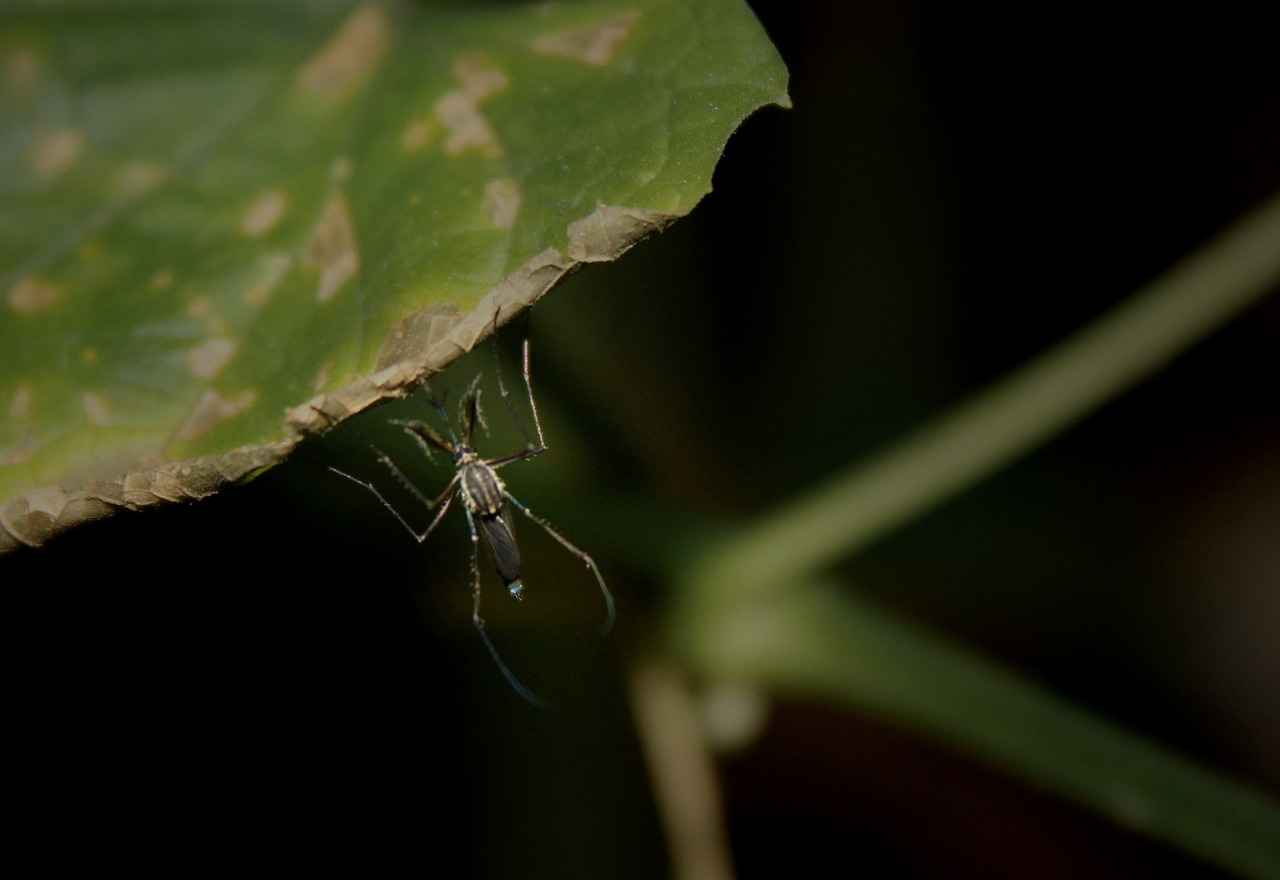
Health Risks Associated with Mosquito Bites
Understanding the health risks linked to mosquito bites in dogs is essential for every pet owner. Mosquitoes are not just a nuisance; they can be vectors for serious diseases that can affect the health of our furry companions. This section will delve into the various diseases that mosquitoes can transmit to dogs, emphasizing the importance of prevention and awareness.
One of the most concerning diseases transmitted by mosquitoes is heartworm disease. This parasitic infection can lead to severe health issues, including heart failure and even death if left untreated. Heartworms are transmitted when an infected mosquito bites a dog, allowing the larvae to enter the dog’s bloodstream. Regular veterinary check-ups and preventive medications are vital in protecting dogs from this life-threatening condition.
Another disease of concern is the West Nile virus, which can also affect dogs, although it is more commonly known to impact birds and humans. Infected dogs may exhibit symptoms such as fever, lethargy, and neurological issues, making it crucial for pet owners to be vigilant about their pets’ health during mosquito season.
Additionally, Eastern equine encephalitis (EEE) and Western equine encephalitis (WEE) are viral infections that can also pose risks to dogs. Symptoms may include fever, behavioral changes, and in severe cases, seizures or paralysis. Understanding these potential health risks is vital for timely intervention and treatment.
Pet owners should be aware of the signs of disease in dogs, such as unusual lethargy, loss of appetite, or changes in behavior. Recognizing these symptoms early can lead to prompt veterinary care, which is essential for the well-being of the dog.
In conclusion, the health risks associated with mosquito bites in dogs are significant and warrant attention. By understanding the diseases that mosquitoes can transmit and recognizing the symptoms, pet owners can take proactive measures to protect their beloved pets. Regular veterinary visits, preventive treatments, and awareness of the environment are key strategies in ensuring the safety and health of dogs during mosquito season.
Common Diseases Transmitted by Mosquitoes
As pet owners, it is crucial to be aware of the health risks that mosquitoes pose to our furry companions. Among the various threats, mosquitoes are notorious for transmitting a range of diseases that can severely affect dogs. This subsection aims to shed light on these common diseases, helping pet owners take proactive measures to safeguard their pets.
One of the most concerning diseases transmitted by mosquitoes is heartworm. Heartworm disease is caused by a parasitic worm that affects a dog’s heart and lungs, leading to serious health issues. The transmission occurs when a mosquito bites an infected dog and then bites another dog, passing on the larvae. Symptoms of heartworm may not be apparent until the disease has progressed, making regular veterinary check-ups and preventive medications essential.
Another significant disease is the West Nile virus, which can affect dogs, although it is more commonly known to impact birds and humans. While dogs are less susceptible than other species, they can still contract the virus through mosquito bites. Symptoms can include fever, disorientation, and neurological issues, necessitating immediate veterinary attention if they are observed.
- Eastern Equine Encephalitis (EEE): A rare but serious viral disease that can cause inflammation of the brain in dogs.
- Western Equine Encephalitis (WEE): Similar to EEE, this virus can lead to severe neurological problems.
- Canine Leptospirosis: Although primarily spread through contaminated water, mosquitoes can play a role in the transmission of this bacterial disease.
Pet owners should remain vigilant during mosquito season. Regularly using preventive treatments and maintaining a mosquito-free environment can significantly reduce the risk of these diseases. Understanding the symptoms and being proactive can ensure that our beloved pets stay healthy and happy.
Signs of Disease in Dogs
Recognizing the signs of mosquito-borne diseases in dogs is crucial for early intervention. Pet owners must be vigilant and informed about the symptoms that may indicate a serious health issue. Understanding these signs can make a significant difference in the outcome for affected dogs.
One of the primary diseases transmitted by mosquitoes is heartworm disease. Dogs infected with heartworms may not show symptoms immediately, but as the disease progresses, several warning signs become evident:
- Coughing: Persistent coughing can indicate heartworm presence, as the worms affect the lungs and heart.
- Fatigue: Dogs may exhibit unusual tiredness, especially after mild exercise.
- Weight Loss: A noticeable decrease in weight, despite a normal appetite, could be a sign of underlying health issues.
- Difficulty Breathing: As the disease advances, dogs may struggle to breathe, indicating severe health complications.
Another significant concern is the West Nile virus, which can also affect dogs. Symptoms of this illness may include:
- Fever: Elevated body temperature can be a sign of infection.
- Neurological Symptoms: Signs such as disorientation, seizures, or difficulty walking are serious and require immediate veterinary attention.
- Loss of Appetite: A sudden change in eating habits can indicate illness.
If you notice any of these symptoms in your dog, it is essential to seek veterinary care immediately. Early diagnosis and treatment can significantly improve the prognosis for dogs suffering from mosquito-borne diseases.
In conclusion, being aware of the signs of disease in dogs can empower pet owners to take proactive steps in safeguarding their furry companions. Regular veterinary check-ups and preventive measures against mosquito bites are vital in maintaining your dog’s health.
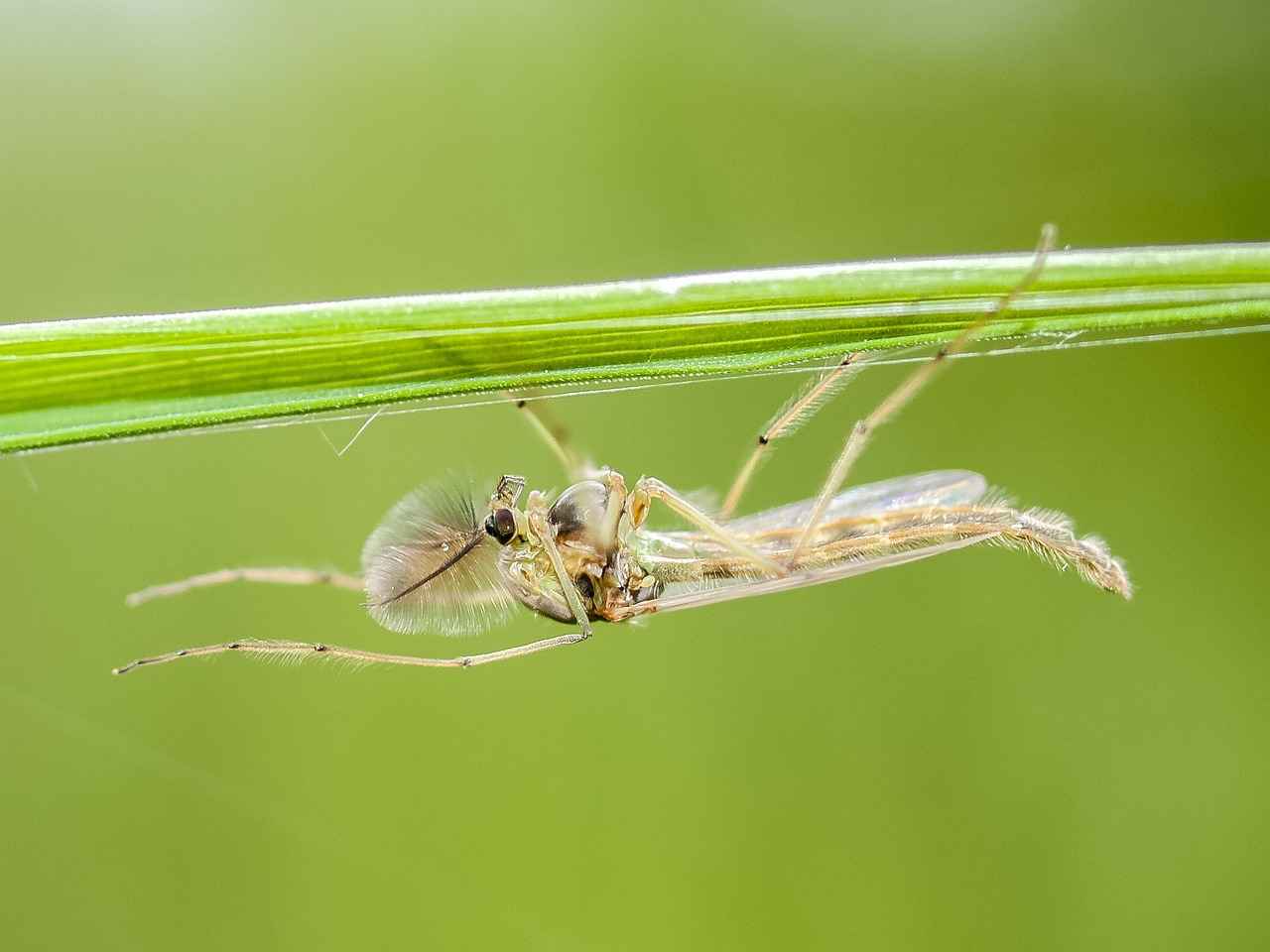
When to Seek Veterinary Care
As a responsible dog owner, understanding when to seek veterinary care for your pet is crucial, especially concerning mosquito bites and their potential complications. Prompt action can make a significant difference in your dog’s health and well-being. Below are specific situations and symptoms that should prompt you to contact your veterinarian.
- Severe Swelling: If you notice significant swelling around the bite area or elsewhere on your dog’s body, this could indicate an allergic reaction. Immediate veterinary attention is recommended.
- Persistent Itching or Scratching: If your dog is excessively scratching or biting at the area of the bite, this could lead to skin infections. A vet can provide relief and treatment options.
- Signs of Infection: Symptoms such as pus, increased warmth, or a foul odor from the bite site signal an infection. Prompt treatment is essential to prevent further complications.
- Behavioral Changes: If your dog becomes unusually lethargic, irritable, or shows signs of distress, these behavioral changes may indicate pain or discomfort that requires veterinary evaluation.
- Fever: A rise in body temperature can be a sign of infection or a more serious reaction. If your dog has a fever following a mosquito bite, seeking veterinary care is advisable.
- Symptoms of Disease: Keep an eye out for symptoms associated with mosquito-borne diseases, such as coughing, difficulty breathing, or gastrointestinal issues. These symptoms necessitate immediate veterinary attention.
By being vigilant and proactive, you can ensure your dog remains healthy and safe from the potential dangers posed by mosquito bites. Always consult your veterinarian if you have any doubts or concerns about your pet’s health.
Frequently Asked Questions
- Do mosquitoes bite dogs?
Yes, mosquitoes do bite dogs! Just like humans, our furry friends can be targets for these pesky pests, especially during warmer months. It’s important to keep an eye on your dog when they are outside, particularly in the evening when mosquitoes are most active.
- What symptoms should I look for if my dog is bitten by a mosquito?
Common symptoms of mosquito bites in dogs include swelling, redness, and itching at the bite site. You might also notice your dog being more restless or irritable than usual. If you see these signs, it’s a good idea to keep an eye on them and consult your vet if symptoms worsen.
- How can I protect my dog from mosquito bites?
There are several effective ways to protect your dog from mosquito bites! Using mosquito repellents specifically designed for pets is a great start. Additionally, creating a mosquito-free environment in your yard by maintaining your landscaping and using screens can help keep these pests at bay.
- What diseases can mosquitoes transmit to dogs?
Mosquitoes can transmit several serious diseases to dogs, including heartworm and West Nile virus. Awareness of these diseases is crucial for pet owners, as they can have severe health implications for your furry friends.
- When should I take my dog to the vet after a mosquito bite?
If you notice any unusual symptoms, like excessive swelling, lethargy, or signs of distress, it’s important to seek veterinary care immediately. Early intervention can make a significant difference in your dog’s health.


